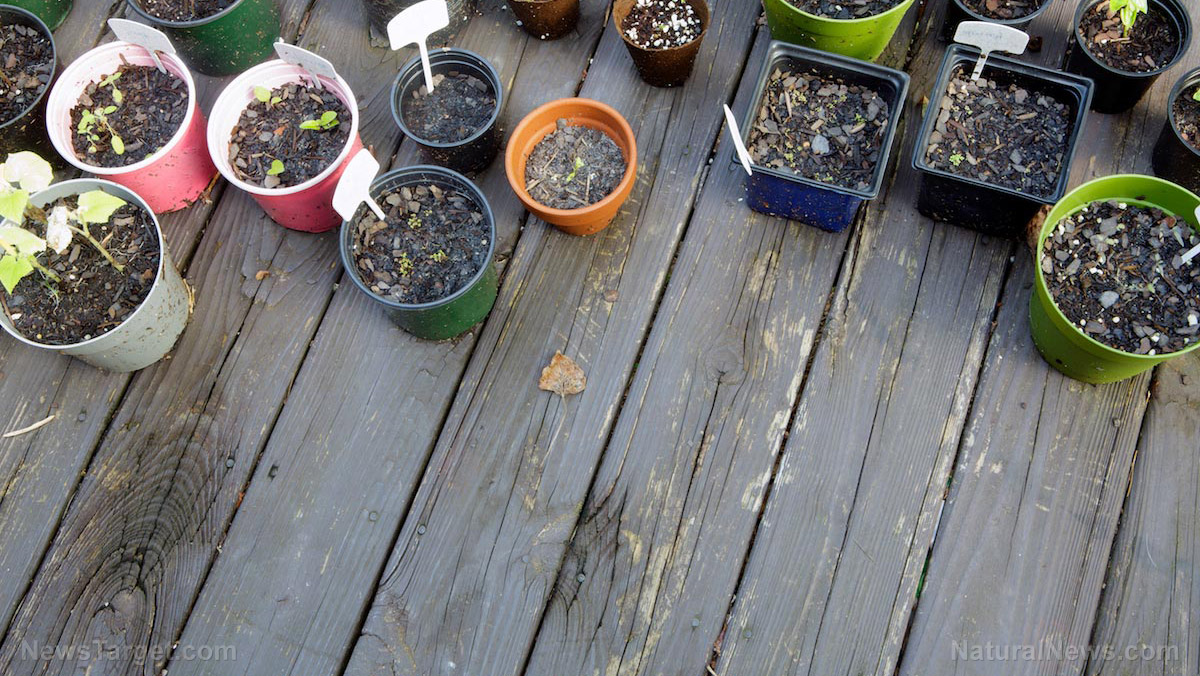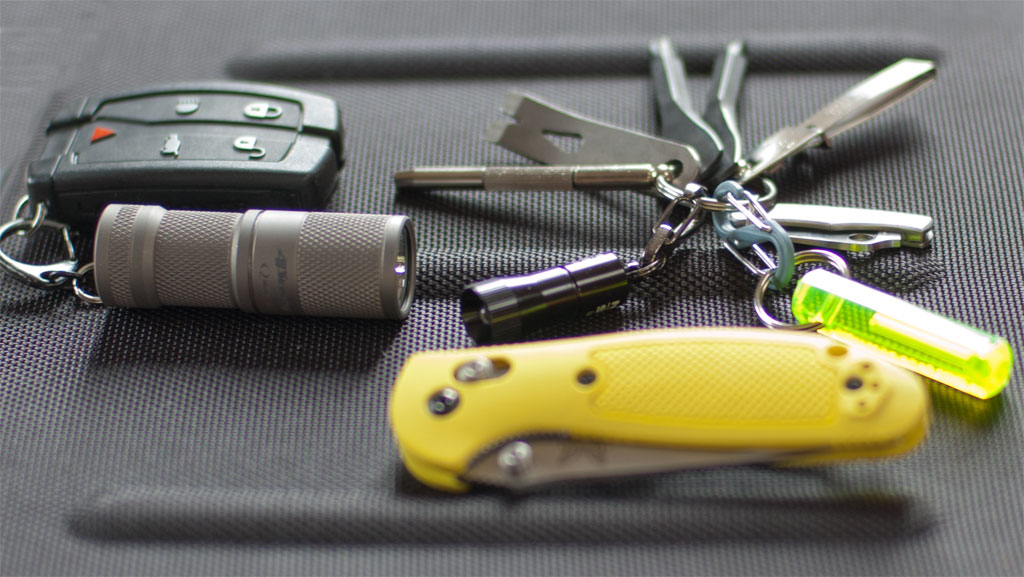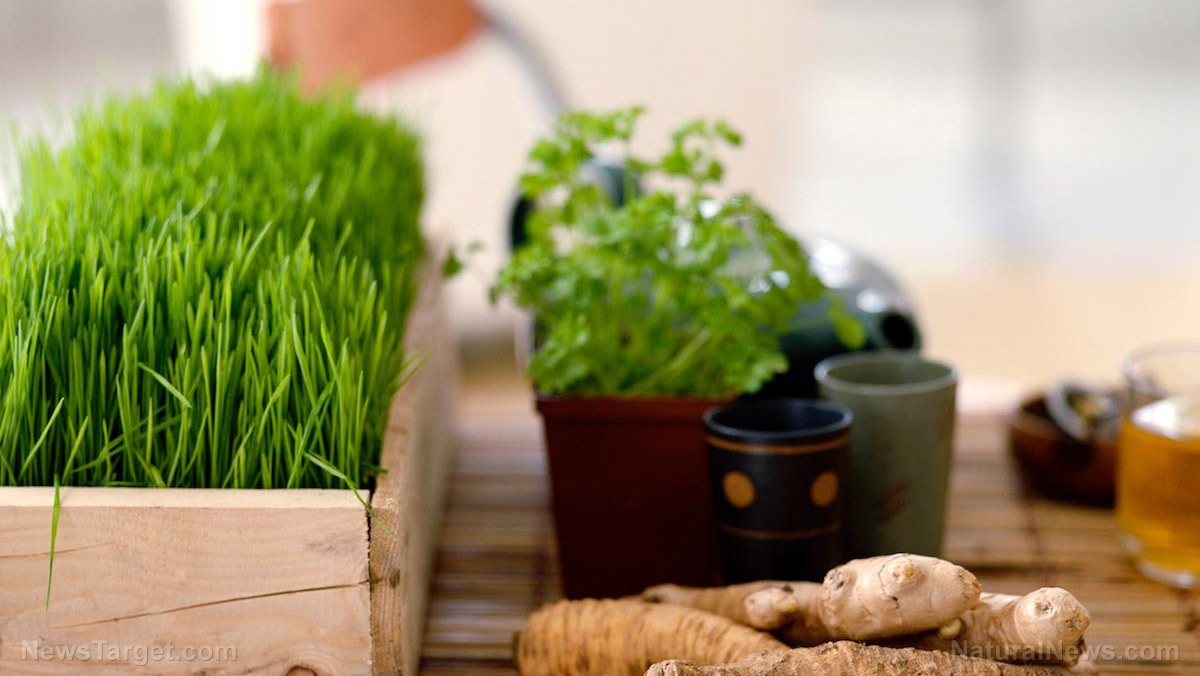
Ideally, a home garden should be spacious, with enough room for different plants. But if you live in an apartment without a backyard or if your soil is rocky or sandy, you can still grow various plants through container gardening. (h/t to ThePrepperJournal.com)
Even if you have quality soil and a spacious yard, you can still try container gardening. It is a more convenient form of home gardening that can also minimize damage to your plants caused by harsh weather conditions.
Modify pots
Before buying a container, check if you can make additional drainage holes. Adding extra holes one to four inches up the sides of the pots allows for adequate drainage that many pots lack.
A container should also be large enough so you can fill it with things like:
- Branches
- Mulch
- Pine cones
- Rock
- Sand
This fill space creates a reservoir area that limits how often your plants need to be watered, similar to sub-irrigated planters.
Use large containers
Use nutrient-rich soils and organic liquid feeds, then plant herbs and vegetables in roomy containers so their roots can grow. Using smaller containers will limit the depth and width that plant roots can expand into.
Short-lifespan plants harvested as baby leaves will do well in smaller pots, but perennials and larger plants will require adequate root space so they can thrive throughout the season.
When using planters, decrease the usable space by at least one inch at the top to prevent overflow.
Mulch plants in containers
Mulching is good for container gardening because it limits evaporation and prevents soil compaction due to overhead watering and rain. Mulching also minimizes the number of weeds that can access the soil in outdoor containers, helping your plants grow stronger and making weeds easier to remove without disturbing the plants and the soil.
Mulching gives your seedlings an insulating barrier, which prevents them from drying out. It also helps limit the heat and cold that your plants are exposed to.
Watering and washout tips
If you have container gardens or raised beds, watering your plants will involve many considerations. For one, soil-to-plant ratio is crucial because planters can't contain too much water. You'll need to water your plants more often with this setup than if they were planted on the ground.
To circumvent this, try sinking containers in the ground. Doing this even partway will give your plants access to additional water and minimize water drainage. It will also help with temperature regulation.
To prevent nutrients from washing out of pots during heavy rains, use plastic or poly covers. Alternatively, you can add fertilizer in small increments to the top of planters instead of mixing them into the soil.
Maximize growing space
Use individual planters to mimic the tight spacing in intensive gardening methods such as square foot gardening.
For easier conversions, use buckets, troughs with about six-inch soil depths, and containers with similar shapes. You can also use storage totes and lined or plastic drawers, along with smaller containers like cut soda bottles.
Learn from your mistakes
If you continue working on your container garden, you'll eventually figure out how to maximize space and soil usage effectively. Since you're working with limited space, be realistic about what you can productively grow and how many plants you'll need to harvest. (Related: Tips for growing your own food without a garden, even if you live in a tiny apartment.)
If your container gardening space is limited, avoid large, long-growing plants that you can only harvest once or twice like ball cabbage, broccoli, corn, or large winter melons.
Instead, plant staggered crops with faster and better total yields, like:
- Basil
- Carrots
- Cherry or grape tomatoes
- Kale
- Lettuce
- Oregano
- Parsley
- Peppers
- Peas
- Potatoes
- Smaller summer or acorn squash
- Spinach
- Strawberries
Plant cover crops
Container gardens also benefit from cover crops. Cover crops will help break the disease cycle and revitalize your soil.
Grow cover crops that you can cook with or that will provide mulch for your planters.
Grow companion plants
Certain plant pairings, like inter-planting onions and lettuce, can sometimes work in small containers.
Echinacea, flowering culinary herbs, flowering wild edibles, and nasturtium are also good companion plants. They aid pollinators before, during, and after flowering gulfs.
Companion plants act as camouflage and can repel pesky bugs and crop pests. Edible companion plants are also a great source of spices or medicinal greens.
Cluster containers
Grouping planters together will help shade bare soil in summer. This will also reduce heat and water losses and save you the effort of extra irrigation. Additionally, clustering containers can help with temperature regulation.
Maximize space in your homestead or apartment by practicing container gardening.
Sources include:
Please contact us for more information.

















